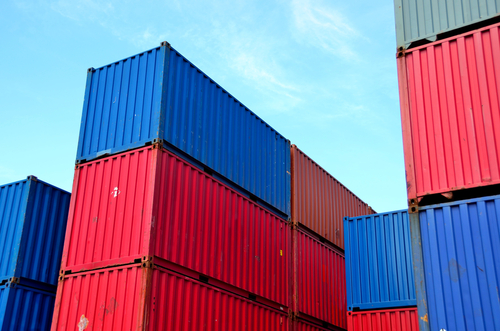January 29, 2016 | Industry Insights
Get Ready for SOLAS Container Weight Rule Effective July 1, 2016

\Beginning July 1, 2016, the International Maritime Organization (IMO) approved amendments to The International Convention for the Safety of Life at Sea Convention (SOLAS), requiring that shippers verify gross container weight prior to shipping.
The requirement will become not just international law under the IMO but also national law within the 170 countries and three associate members that are signatories to the IMO. After July 1, 2016, it would be a violation of SOLAS to load a packed container onto a vessel if the vessel operator and marine terminal operator do not have the verified gross mass (VGM). According to the Journal of Commerce (JOC), “early analysis suggests the ocean carrier and the marine terminal will be strict in not accepting containers lacking an accompanying VGM since under the SOLAS rule they can be held responsible for loading a container for which a VGM hasn’t been provided.”
Shippers, freight forwarders, vessel operators, and terminal operators will all need to establish policies and procedures to ensure the implementation of this regulatory change. Following is some basics of the new requirement:
- To meet the new container weight mandate, the cargo must either be weighed at the loading container at an approved weighing station; or all items in the container weighed and then included in the overall container’s weight calculation.
- The shipper named on the ocean bill ultimately bears the responsibility for weight verification, and must communicate the verified weight in advance, to allow the ship’s master and the terminal representative to prepare the ship stowage plan accordingly. Note that the responsibility of the shipper doesn’t go away if a shipper uses a forwarder to pack and weigh a container, forward it to the port and even make the booking with the carrier.
- The shipper weight verification to be compliant with the SOLAS requirement must be “signed”, which means a specific person representing the shipper is named and identified as having verified the accuracy of the weight calculation on behalf of the shipper. The signature may be an electronic signature or may be replaced by the name in capitals of the person authorized to sign it. The VGM and signature can be part of the shipping instructions communicated via electronic data interchange (EDI), or be contained within a separate communication including a hard copy document.
- The container should not be loaded onto the vessel if the shipper did not provide the packed container’s verified weight prior to shipping, unless the master or the terminal can obtain the verified weight through other means.
- Maritime authorities of individual nations will endorse the rule, with regulatory implementation varying depending on the country and region. According to the JOC, “enforcement will likely be carried out directly by the container lines and terminal operators, who are both required not to load a container without the certified VGM document accompanying it. Enforcement agencies may implement measures to satisfy themselves that compliance is achieved, which could include documentation checks, auditing or random weight checks.”
For more detailed information related to the SOLAS container weight requirement including the impact of this new ruling on third-party logistics companies (3PLs), please visit http://www.joc.com/special-topics/container-weights or http://www.worldshipping.org/.
Roanoke Trade specializes in providing innovative insurance products to address the varied and often complex exposures of transportation and logistics service providers. We are committed to keeping you updated on regulations impacting the industry and providing helpful resources for compliance. To discuss your insurance needs, contact one of our professionals at 1-800-ROANOKE (800-762-6653).





